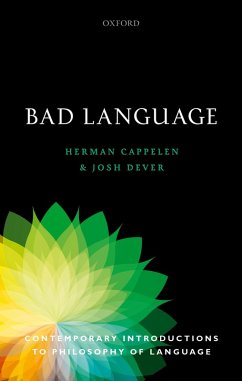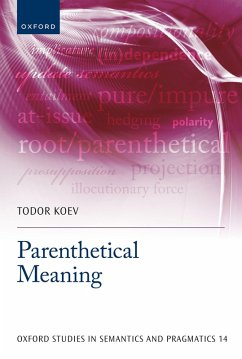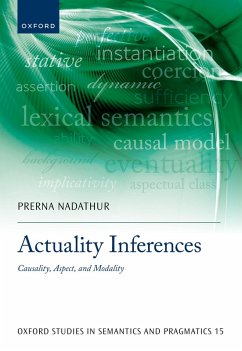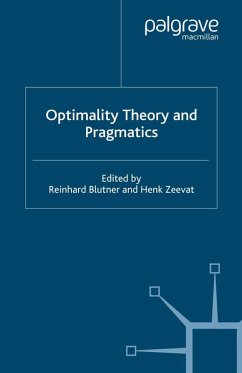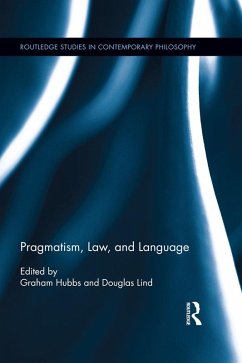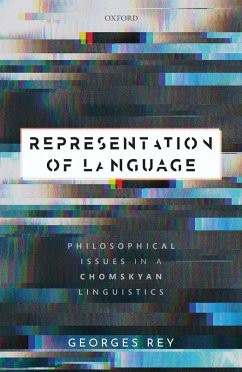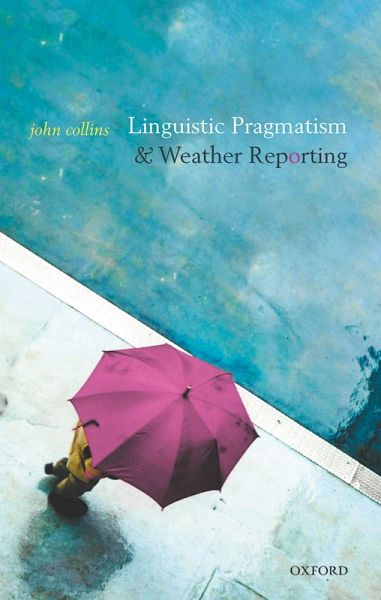
Linguistic Pragmatism and Weather Reporting (eBook, PDF)

PAYBACK Punkte
14 °P sammeln!
Linguistic pragmatism claims that what we literally say goes characteristically beyond what the linguistic properties themselves mandate. In this book, John Collins provides a novel defence of this doctrine, arguing that linguistic meaning alone fails to fix truth conditions. While this position is supported by a range of theorists, Collins shows that it naturally follows from a syntactic thesis concerning the relative sparseness of what language alone can provide to semantic interpretation. Language-and by extension meaning-provides constraints upon what a speaker can literally say, but does ...
Linguistic pragmatism claims that what we literally say goes characteristically beyond what the linguistic properties themselves mandate. In this book, John Collins provides a novel defence of this doctrine, arguing that linguistic meaning alone fails to fix truth conditions. While this position is supported by a range of theorists, Collins shows that it naturally follows from a syntactic thesis concerning the relative sparseness of what language alone can provide to semantic interpretation. Language-and by extension meaning-provides constraints upon what a speaker can literally say, but does not characteristically encode any definite thing to say. Collins then defends this doctrine against a range of alternatives and objections, focusing in particular on an analysis of weather reports: 'it is raining/snowing/sunny'. Such reporting is mostly location-sensitive in the sense that the utterance is true or not depending upon whether it is raining/snowing/sunny at the location of the utterance, rather than some other location. Collins offers a full analysis of the syntax, semantics, and pragmatics of weather reports, including many novel data. He shows that the constructions lack the linguistic resources to support the common literal locative readings. Other related phenomena are discussed such as the Saxon genitive, colour predication, quantifier domain restriction, and object deletion.
Dieser Download kann aus rechtlichen Gründen nur mit Rechnungsadresse in A, B, BG, CY, CZ, D, DK, EW, E, FIN, F, GR, HR, H, IRL, I, LT, L, LR, M, NL, PL, P, R, S, SLO, SK ausgeliefert werden.





